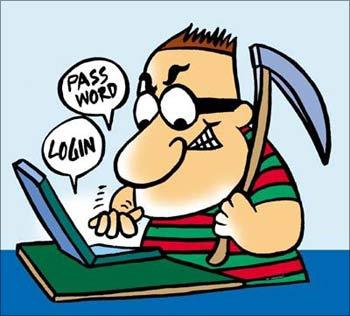
The number of fraudsters who are trying to get the better of gullible customers are on the rise. The tricks they use are often convincing as the tricksters sound authentic and even use fake official IDs.
Here are five things that fraudsters are likely to say or do that should set the alarm bells ringing in your head.
Fake calls, text messages or email
If you receive a call or a text message from some individual who claims to be an executive of your bank and asks for your "full disclosure" with your four digit debit card number or your online passwords to access your bank account, be alarmed immediately.
No bank executive, telecaller or anybody remotely related to the banking operations is authorised to seek such information.
Sending an executive home
If someone turns up at your doorstep posing as a bank employee, and asks for your debit card or credit card with the intention of "replacing it", do not hand it over and disclose any passwords. The official identification that the so called employee will show you is going to be a fake one.
Be aware of the fact that when a bank intends to replace your card, it corresponds with you directly and sends you the said card by a trusted courier service.
Till such time you are using your old card, do not make the mistake of handing it over to anyone posing a representative of your bank or credit card issuer. When you receive your new card and want to dispose the old one, make sure you scratch out the CVV number and cut up the card diagonally so that the magnetic strip cannot be used any further.
Tax refund mails from RBI
Have you ever received a mail from the RBI that claims that your tax refund has been processed and in order to receive it you need to provide your credit card number and CVV code to access it?
Or you need to provide an online banking password in order to receive the refund. Such mails are a big hoax as neither the RBI nor the IT department ever asks for your credit card details or password.
In fact the RBI never corresponds directly with any bank customer in the first place. Once you have followed the required procedure for filing your returns, your refund automatically gets credited into your bank account or you get a cheque from the IT department with the said amount.
"Test" Transaction Online
Fraudsters, may also pose as bank employees and ask you to carry out a test transaction online because of a "technical glitch" on the bank website. This should once again raise alarm in your mind, because a bank would never require you to carry out any such transaction.
If indeed there is a problem or a technical glitch you will come to know about it when you try carry out an online transaction. But the bank will never proactively inform you about such glitches and ask you to make a test transaction to nullify the same.
Authorise a bank official to transfer funds into a new account
This is perhaps the most worrisome of them all, when a criminal herself/himself calls to warn you against a "possible criminal attack" on your account. As a result, s/he may say that a new account has been created in your name where you can transfer your funds immediately in order to keep your money safe, and before you know it, you have actually transferred all your funds into the criminal's account!
Needless to say, this is something that your bank would never do.
In fact, in order to tackle this menace, most banks have put in adequate checks and balances in place. Therefore, when there is any extraordinary transaction that is noted online or on your card, you either receive a call from the bank's end or get a text message or email asking you if you have indeed made such a transaction.
If the answer is in the affirmative, there is no reason to worry. But in case it's a fraudulent transaction, you will be notified immediately and the bank will take the corrective measures necessary.
While the banks and credit card issuers are trying their best to provide a safe and secure environment for you to carry out transactions, on your part, you too should be aware of the kind of frauds that people fall prey to.
In case of any such calls, messages, emails or home visits, as mentioned earlier, do not comply with what the so called "official" says. Never give out any personal information regarding your account, passwords either online or offline. If you are an informed citizen and a proactive banking customer, there is little that these fraudsters can do to harm you!
Illustration: Uttam Ghosh/Rediff.com
The author is a credit expert with 10 years of experience in personal finance and consumer banking industry and another 7 years in credit bureau sector. Rajiv was instrumental in setting up India's first credit bureau, Credit Information Bureau (India) Limited (CIBIL). He has also worked with Citibank, Canara Bank, HDFC Bank, IDBI Bank and Experian in various capacities.











